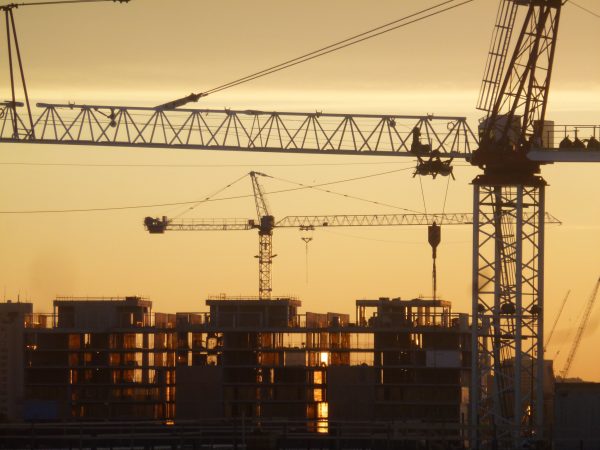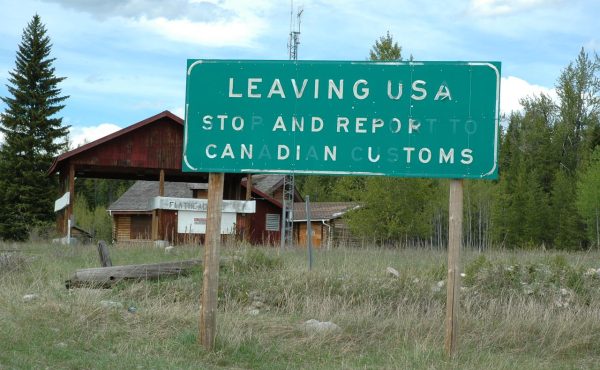Governments across Canada have an apparently bottomless appetite for foreign buyers’ taxes, a mild and very Canuck form of policy racism that begins with the premise that people from away are driving up the price of residential real estate hereabouts.
This trend started in British Columbia — which had an actual problem with money laundering in real estate in the mid-2010s — and has since expanded to other regions and other levels of government, including Ottawa, which last year slapped a ban on the purchase of residential property by foreign buyers. The former Ontario Liberal government introduced a 25% tax on foreign purchases of real estate in 2017, and now the City of Toronto appears to want in on this game, with a proposal to add a 10% “municipal non-resident speculation tax” (MNRST).
A staff report scheduled to land at Mayor Oliva Chow’s executive committee later this month cites the rationale right up top: “Originally implemented in 2017, the purpose of the provincial [non-resident speculation tax (NRST)] was to discourage speculation and thereby help to address unsustainable demand in the Greater Golden Horseshoe area.”
Did the NRST discourage speculation? The staff report doesn’t say. But it does argue that the primary purpose of a municipal version is “to safeguard and enhance the availability of residential housing supply and to maintain a level of affordability in the residential real estate market by discouraging international buyers from purchasing property in the City of Toronto.”
The revenue generated by the MNRST, according to estimates included in the report, will come to a paltry $15 million in 2025 (i.e., one-tenth of 1% of the City’s budget). Quite apart from the modest windfall, a progressive-leaning council and mayor should reject this retrograde scheme, which lacks a clear policy justification and traffics in a kind of thinking that seeks to falsely assuage the public’s concerns about the true drivers of rising housing prices.
The original foreign buyers’ tax, in B.C., did aim to curb a crisis that caught the attention of a lot of people both inside and outside of government — a tsunami of dirty offshore money that inundated not only the property market but also B.C. casinos, luxury car dealers, white-label ATMs, and various second-tier financial services businesses. The province established the Cullen Commission, which in 2022 released a 1,831-page report with a bevy of policy and regulatory recommendations for both the federal government and provincial agencies.
A foreign-buyer’s tax was part of B.C.’s attempt to tamp down on all this activity. Then other governments got into the act, eagerly levying a kind of tax that is seen, politically but certainly not economically, as a victimless crime. Like the land transfer tax, it hits a fluid and dispersed — not to mention disenfranchised — constituency, and thus doesn’t leave a political mess in the way that more direct taxes that apply across the board do.
The suggestion that Ontario’s NRST has done anything to take the gas out of real estate speculation is, on its face, ridiculous. Real estate prices have skyrocketed in the years since 2017, and the only force that really slowed them down were interest rate spikes imposed by the Bank of Canada to contain runaway inflation.
More troubling, however, is the way that such taxes subtly shift the blame for frothy house prices from ‘us’ to ‘them.’ I’d say realtors, the folks in the buy-fix-and-flip business, and luxury design/build firms have done far more to stoke speculation than offshore buyers. Sure, some large developers market high-rise condos in Asia, and presumably some of those investors will get caught in this kind of tax grab. But let’s face it: there are plenty of culprits much closer to home. Yet we’re not talking about a speculation tax on domestic flippers of residential property because, well, that kind of thing prods the beast.
Nor does this measure do anything to confront speculation — both domestic and off-shore — in the rental apartment sector. Just this past week, the giant New York fund company Blackstone bid US$3.5 billion for Tricon, a major Toronto apartment landlord. Will Blackstone, which has an extensive trans-border real estate portfolio, get dinged with any kind of anti-speculation tax by either the province or the City? No. Is this kind of deal speculation? Yes.
While it may be good politics to hit foreigners with anti-speculation taxes, the harsh reality is that we live in a world where real estate has become a profoundly financialized asset. The only real benefit with these kinds of taxes is that they bring some new lucre to government coffers. Yet in the case of Toronto, they merely deepen the City’s reliance on real estate markets to fund City services.
There’s also this wrinkle: we can ask if a very minor and ineffective tax will do harm. The staff report offers a surprisingly candid answer. In a table on page 6, the analysis shows the aggregate financial impact of these provincial and municipal taxes on homes of various values.
For dwellings of $500,000 or $750,000, which count as very modest in the Toronto of 2024, the combined hit from two types of land transfer taxes and two types of non-resident speculation taxes adds about 38% to the purchase price.
If someone in, say, Shanghai or Singapore or Los Angeles is buying a small Toronto condo with the intention of renting it out, guess who will be shouldering the brunt of that premium? Yes, the person who rents it. Who may or may not be “foreign.” But whose cost of living in Toronto will simply be that much higher.






One comment
You introduce a valuable talking point. We have to accept that a large part of our community will be renters. Somebody has to own that asset, and more importantly be prepared to invest to have those assets built. Who cares where they are from? Capital influx to provide needed housing should be welcomed from anywhere. Predatory landlords can also be local after all.
Affordability should be addressed through other means. Honestly I don’t know how, but that’s the challenge we should focus on. The nationality of the landlord seems kind of moot.
I think Vancouver’s vacant domicile tax is an interesting try. It’s messy, but it at least takes a stab at not letting empty spaces go wasted. I guess we will see if it actually improves anything.